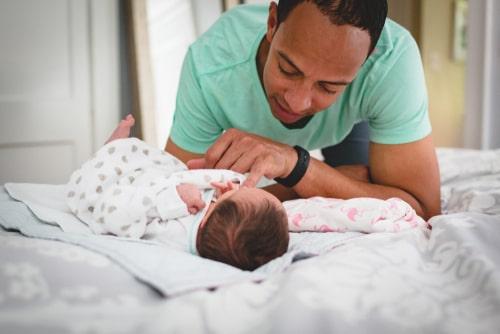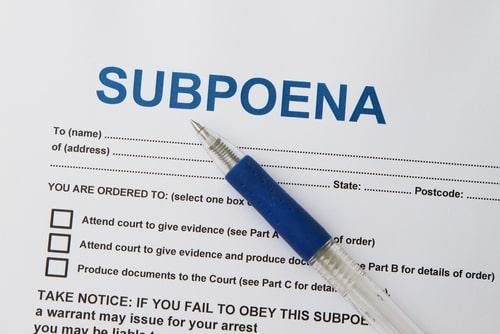Recent Blog Posts
When Are Psychological Evaluations Used in Illinois Divorce?

Custody disputes can be quite complicated to resolve when parents get a divorce. The people involved often feel tense and emotions can run high. Trying to figure out how parental responsibilities and rights will be divided can be especially challenging if either parent’s mental health and emotional regulation are in question. If one parent expresses concerns that the other is psychologically incapable of properly caring for their children and providing them with a safe and stable home, the courts will take such concerns very seriously as they attempt to draft a settlement that will ultimately serve the child’s best interests. In such cases, psychological evaluations can be very helpful. A knowledgeable Kane County, IL child custody attorney can provide more thorough information about this and examine whether a psychological evaluation might be suitable in your case.
What Marriages Are Prohibited in Illinois?
 Living in the United States affords you a great deal of freedom and civil liberties. People are largely free to make decisions for themselves and eat, wear, think, and do whatever they want unless what they want could pose a threat to them or others. That is why there are speed limits, food and drug regulations, rules about how a business needs to treat its customers, and countless other ways the law restricts us to protect the greater good.
Living in the United States affords you a great deal of freedom and civil liberties. People are largely free to make decisions for themselves and eat, wear, think, and do whatever they want unless what they want could pose a threat to them or others. That is why there are speed limits, food and drug regulations, rules about how a business needs to treat its customers, and countless other ways the law restricts us to protect the greater good.
One area you may not expect there to be regulations involves who you can marry. In the state of Illinois, certain types of relationships are prohibited. If your marriage falls under this category, it can be annulled, meaning you can end your prohibited marriage without needing a divorce. The law would simply recognize that it was never legal to begin with, and it is essentially canceled. If you have questions about the validity of your marriage, a Wheaton, IL family law attorney can offer you answers.
Will My Illinois Divorce Be Affected by Who Files First?
 The first official step that needs to be taken when a couple understands that they want to begin divorce proceedings is to file for divorce. You might worry that if your spouse files for divorce first, it could somehow influence how it will play out. In truth, this does not have much of an impact. This article will explain why. If you have any further questions about whether your divorce will be affected by whoever files for divorce first, a knowledgeable St. Charles, IL divorce lawyer can offer more detailed explanations.
The first official step that needs to be taken when a couple understands that they want to begin divorce proceedings is to file for divorce. You might worry that if your spouse files for divorce first, it could somehow influence how it will play out. In truth, this does not have much of an impact. This article will explain why. If you have any further questions about whether your divorce will be affected by whoever files for divorce first, a knowledgeable St. Charles, IL divorce lawyer can offer more detailed explanations.
Will I Seem Guilty if My Spouse Files for Divorce?
It used to be that a spouse who wanted to get a divorce needed to offer grounds, meaning they had to explain why they wanted to end their marriage. The state of Illinois changed this requirement, and now the only acceptable grounds for divorce are irreconcilable differences. Neither spouse is blamed for the breakdown in the relationship, and the resulting divorce settlement reflects this as well. Since Illinois divorce proceedings do not include placing blame on either spouse, there is no need to worry that if your spouse files first, it can make it seem like they are the injured party, and you should be punished in your settlement. it does not matter who files first; any arrangements for child custody, asset division, and other aspects of the divorce will be decided without any consideration for who filed.
How Are Offshore Accounts Handled in an Illinois Divorce?
 A common divorce topic is the division of assets and property. Typical assets that a couple needs to divide in divorce include bank accounts, savings accounts, apartments, and cars. People with significant wealth sometimes have local bank accounts as well as offshore accounts abroad, which is perfectly legal. However, offshore accounts are of particular interest in divorce because they are sometimes used by a spouse to try to hide assets and avoid dividing them, which is not legal. If you are preparing for a divorce and are concerned that your spouse is using offshore accounts to hide assets, a knowledgeable DuPage County, IL asset division attorney can advise you on how to navigate this situation.
A common divorce topic is the division of assets and property. Typical assets that a couple needs to divide in divorce include bank accounts, savings accounts, apartments, and cars. People with significant wealth sometimes have local bank accounts as well as offshore accounts abroad, which is perfectly legal. However, offshore accounts are of particular interest in divorce because they are sometimes used by a spouse to try to hide assets and avoid dividing them, which is not legal. If you are preparing for a divorce and are concerned that your spouse is using offshore accounts to hide assets, a knowledgeable DuPage County, IL asset division attorney can advise you on how to navigate this situation.
Why Would Someone Have an Offshore Account?
Some people have bank accounts in other countries if they also have a residence or business there. Overseas accounts can also be beneficial for international transactions as well as for various financial considerations. While using an offshore account to hide money from the IRS and avoid paying taxes you owe is illegal, managing your finances in multiple countries is not. However, hiding assets in offshore accounts in order to avoid dividing them with a spouse during divorce proceedings is against the law.
What Is Birdnesting Custody in Illinois?
 When parents get a divorce, they generally try to figure out where each ex-spouse will live and come up with a schedule for which home the children go to when. That is certainly the most common custody arrangement, but not the only one available. Some parents decide to keep the children in the family home, and instead of the children moving from home to home, the parents alternate when they stay at that home. Otherwise known as birdnesting, this option is not for everyone, but under certain circumstances, it can work wonderfully. If you and your spouse are considering birdnesting, speak with an experienced Kane County, IL divorce lawyer to help you understand your options.
When parents get a divorce, they generally try to figure out where each ex-spouse will live and come up with a schedule for which home the children go to when. That is certainly the most common custody arrangement, but not the only one available. Some parents decide to keep the children in the family home, and instead of the children moving from home to home, the parents alternate when they stay at that home. Otherwise known as birdnesting, this option is not for everyone, but under certain circumstances, it can work wonderfully. If you and your spouse are considering birdnesting, speak with an experienced Kane County, IL divorce lawyer to help you understand your options.
How Does Birdnesting Work?
When divorced parents decide to try birdnesting, it takes a great deal of pressure off the children. They don’t need to remember to pack important things frequently as they shuttle back and forth between their parents or make sure to have multiple of all their favorite things. The children keep on living in their home, sleeping in their own room, and it is the parents who alternate sleeping there.
How Does a Voluntary Acknowledgement of Paternity Work in Illinois?
 The state of Illinois has specific rules for determining parentage. A woman giving birth is automatically legally recognized as the biological mother. If she is married to a man at the time of the birth, her husband is automatically recognized as the father without any need to prove this to be the case. Things become more complicated when the mother is not married when she gives birth. There are several ways to determine your paternity so that it is legally recognized. If you are not married and you are about to become a father, speak with an experienced St. Charles, IL paternity lawyer to hear more about your options and how you should proceed.
The state of Illinois has specific rules for determining parentage. A woman giving birth is automatically legally recognized as the biological mother. If she is married to a man at the time of the birth, her husband is automatically recognized as the father without any need to prove this to be the case. Things become more complicated when the mother is not married when she gives birth. There are several ways to determine your paternity so that it is legally recognized. If you are not married and you are about to become a father, speak with an experienced St. Charles, IL paternity lawyer to hear more about your options and how you should proceed.
What is Voluntary Acknowledgement of Paternity?
A voluntary acknowledgment of paternity, or VAP, is a document that includes a declaration by the child’s father that he is, in fact, the father. It needs to be signed by both the father and the mother. When both of the child’s parents voluntarily agree and sign this document, there is no need for DNA tests or any other measures to prove parentage. It is generally signed when a child’s parents are unmarried, but both are interested in each of them being legally recognized as the parents.
How Does an Illinois Judge Decide What Is in My Child’s Best Interest?
 When parents go through a divorce, it is often quite difficult for them to agree on how they should split their parenting time and parental responsibilities, otherwise known as child custody. Some couples manage to come to some sort of agreement if they believe it will be best for their children. Others find that their personal conflicts make it impossible for them to communicate productively and figuring out an arrangement seems too daunting a task. In cases where the parents cannot reach a mutually acceptable agreement on how they will continue to care for their children, it is the court’s job to determine what will be in the child’s best interest. If you have questions about how a court can decide this, a knowledgeable Wheaton, IL child custody lawyer can give you answers.
When parents go through a divorce, it is often quite difficult for them to agree on how they should split their parenting time and parental responsibilities, otherwise known as child custody. Some couples manage to come to some sort of agreement if they believe it will be best for their children. Others find that their personal conflicts make it impossible for them to communicate productively and figuring out an arrangement seems too daunting a task. In cases where the parents cannot reach a mutually acceptable agreement on how they will continue to care for their children, it is the court’s job to determine what will be in the child’s best interest. If you have questions about how a court can decide this, a knowledgeable Wheaton, IL child custody lawyer can give you answers.
What Factors Will a Judge Consider?
When trying to figure out what sort of arrangement would best serve the child in a divorce, there are many factors taken into consideration. These include but are not limited to:
Tips for Newly Divorced Parents in Illinois
 Parents going through a divorce generally find it to be quite a tumultuous process. After a breakup, most exes prefer to spend time apart as they lick their emotional wounds and figure out how to move on. When parents go through a breakup, they are not given that privilege. They need to form a mutually acceptable parenting plan and navigate their transition from being married parents to being two parents raising their children separately. They need to reach a settlement that includes stipulations about child custody, child support, and parental responsibilities. While it might be natural for the parents in this complicated situation to let their emotions take over and do whatever they can to get revenge on their ex, some couples find they can work together if it will benefit their children. Below is a list of tips for newly divorced parents who want to work together for a smoother future of co-parenting. If you would like to know more, a knowledgeable Kane County, IL divorce lawyer can offer useful guidance.
Parents going through a divorce generally find it to be quite a tumultuous process. After a breakup, most exes prefer to spend time apart as they lick their emotional wounds and figure out how to move on. When parents go through a breakup, they are not given that privilege. They need to form a mutually acceptable parenting plan and navigate their transition from being married parents to being two parents raising their children separately. They need to reach a settlement that includes stipulations about child custody, child support, and parental responsibilities. While it might be natural for the parents in this complicated situation to let their emotions take over and do whatever they can to get revenge on their ex, some couples find they can work together if it will benefit their children. Below is a list of tips for newly divorced parents who want to work together for a smoother future of co-parenting. If you would like to know more, a knowledgeable Kane County, IL divorce lawyer can offer useful guidance.
Understanding Dissipation of Assets in an Illinois Divorce
 Any assets that either spouse brings into the marriage and had before the wedding are generally considered individual assets, and anything obtained during the marriage is generally considered marital assets. When a couple gets a divorce, marital asset division is an important part of the divorce settlement. Unfortunately, sometimes a spouse will purposely misuse, waste, or destroy marital assets just before or during divorce proceedings. This is called dissipation of assets, and if you suspect your spouse is doing this, a Wheaton, IL divorce lawyer can help you navigate the steps you can take to remedy the situation.
Any assets that either spouse brings into the marriage and had before the wedding are generally considered individual assets, and anything obtained during the marriage is generally considered marital assets. When a couple gets a divorce, marital asset division is an important part of the divorce settlement. Unfortunately, sometimes a spouse will purposely misuse, waste, or destroy marital assets just before or during divorce proceedings. This is called dissipation of assets, and if you suspect your spouse is doing this, a Wheaton, IL divorce lawyer can help you navigate the steps you can take to remedy the situation.
When Does Dissipation of Assets Apply?
According to Illinois law, if a spouse diminishes marital assets while the marriage is in the process of breaking down, it is considered dissipation of assets. If a couple has concluded that there is no hope for any reconciliation and their next step will be divorce proceedings, and then one spouse does something that significantly diminishes the money that the couple has, this would likely be considered dissipation of assets. There are several different scenarios that might be included in this category:
What to Know about Subpoenas in an Illinois Divorce
 When a couple goes through a contested divorce, it means that the spouses are not in agreement about some aspect of the divorce settlement. When this happens, evidence must be gathered from both parties so that the relevant authorities can make a decision based on fact. If either spouse is unwilling to hand over information that they are asked for, a subpoena might be used to compel them to do so. If you have questions about the role a subpoena might play in divorce, a knowledgeable Kane County, IL divorce lawyer can explain further.
When a couple goes through a contested divorce, it means that the spouses are not in agreement about some aspect of the divorce settlement. When this happens, evidence must be gathered from both parties so that the relevant authorities can make a decision based on fact. If either spouse is unwilling to hand over information that they are asked for, a subpoena might be used to compel them to do so. If you have questions about the role a subpoena might play in divorce, a knowledgeable Kane County, IL divorce lawyer can explain further.
What Does a Subpoena Mean in Divorce Proceedings?
A subpoena can be issued by the court or a lawyer and can be issued to individuals, organizations, or other entities that might have information relevant to a case. It legally requires the recipient to provide documentation or other information. Upon receipt of a subpoena, the recipient is legally bound to respond by either providing whatever was requested or appearing in court. Failure to comply can result in the recipient being held in contempt of the court and possibly even facing criminal charges.












